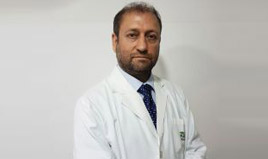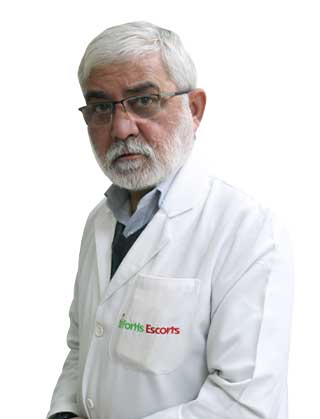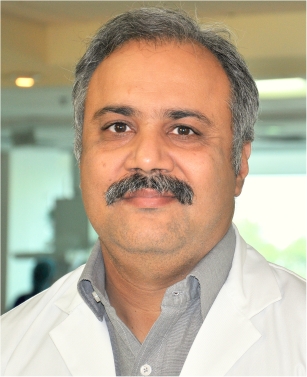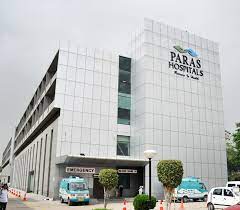About the Doctor
Dr Satish Chander Wasoori is Senior Consultant Endocrinology and Metabolism with a professional experience of more than 20 years. He is Fellow of the American College of Endocrinology (FACE)– a prestigious award and recognition in the field of Endocrinology. He specializes in treating complex cases of Diabetes (T1DM, T2DM, MODY, Gestational). Thyroid Diseases, Metabolic Disorders (Obesity, LipidMetabolism, ,Hypertension),Growth Disorders,Cancers of Endocrine Glands, PCOS, Hirsutism, Osteoporosis, Diabetic Polyneuropathy.He is pioneer in introducing once weekly thyroxine for the treatment of hypothyroidism.
Specialization
- Endocrinology and Metabolism
Awards
- Best paper award at AACE 2016, Orlando, USA. ‘’ once weekly Thyroxine for young and middle aged women for the treatment of hypothyroidism”
Frequently Asked Questions about Endocrinology & Diabetes
What do endocrinologists do?
They are doctors with expertise in the diagnosis and treatment of hormone issues and complications arising from it. If your physician suspects your medical condition is due to hormonal imbalance, they may refer you to an endocrinologist.
What are the common types of endocrine disorders?
An endocrine disorder occurs when there is an imbalance in the levels of hormones in your body. They are classified broadly into:
- Hypersecretion – When your gland secretes an excess amount of hormones
- Hyposecretion – When the glands in your body do not secrete a sufficient amount of hormone
- Tumor – It may be a benign or malignant growth in the gland, causing an imbalance in your body.
Endocrine disorder can give rise to a wide range of symptoms.
Can I consult an endocrinologist for diabetes?
Yes, you can. Diabetes is an endocrine disorder. Insulin is a hormone secreted by the beta islet cells of the pancreas. Insulin deficit can result in a type of diabetes.
What should I expect during the first visit with an endocrinologist?
Often in case of an underlying imbalance in hormone levels can get you a referral to an endocrinologist. These doctors help to diagnose and restore the optimal hormonal level in your body.
On your first visit, they may ask you a series of questions regarding the symptoms, your medical history, current medications, and dietary habits. They will most likely also perform a physical exam to check for blood pressure, heart rate, conditions of the skin, teeth, nails, etc. Depending on your medical condition, they would advise additional tests and suggest a treatment plan.
What are the symptoms of diabetes?
Symptoms of diabetes vary from one person to another, depending on severity and the level of glucose in the blood. Symptoms tend to come early in those with type I diabetes and at a later stage for others.
Some common signs and symptoms of type I and type II diabetes are:
● Frequent urge to drink water or increase in thirst.
● Weight loss due to no known reason.
● Ketonuria – Presence of ketone bodies in urine.
● Polyuria and frequent urination.
● Fatigue and irritability.
● Blurring vision.
● Increase in hunger.
● Susceptible to infections and slow healing of sores.
What are the types of diabetes?
Diabetes is broadly divided into the following types:
Pre-diabetes: occurs when your blood sugar is higher than normal, but it’s not high enough for a diagnosis of type 2 diabetes.
1. Type I diabetes: This type is an autoimmune disease. The immune system attacks and destroys cells inside the pancreas, where insulin is produced.
2. Type 2 diabetes occurs when the body becomes resistant to insulin, and sugar builds up in the blood.
3. Gestational diabetes: This is a condition, characterized by higher than normal blood sugar levels, is developed for the first time during the pregnancy and resolves after delivery .
What causes diabetes?
The underlying cause of diabetes is the abnormal functioning of the pancreas and insulin production from the special cells in the pancreas . It can occur due to any of the following:
● If your pancreas is not producing insulin.
● If your pancreas is producing insufficient insulin, which is unable to meet the body’s demand.
● If the pancreas is producing sufficient insulin, but your body is unable to respond to it, known as insulin resistance.
Type I diabetes
Insulin is produced by the β (beta) cells of the pancreas, and its destruction leads to type I diabetes. It is believed that the immune system attacks and destroys the insulin-secreting cells..
Pre-diabetes and Type II diabetes
Pre-diabetes can lead to type II diabetes where the body does not respond to the insulin secreted. Being overweight has a direct link to type II diabetes.
Gestational diabetes
The hormones produced during pregnancy makes cells resistant to the hormone insulin. Though the pancreas in such conditions secretes an additional amount of insulin to maintain normal sugar level, in some cases, it cannot keep up with the extra production. This leads to the buildup of glucose in the bloodstream rather than the cells.













